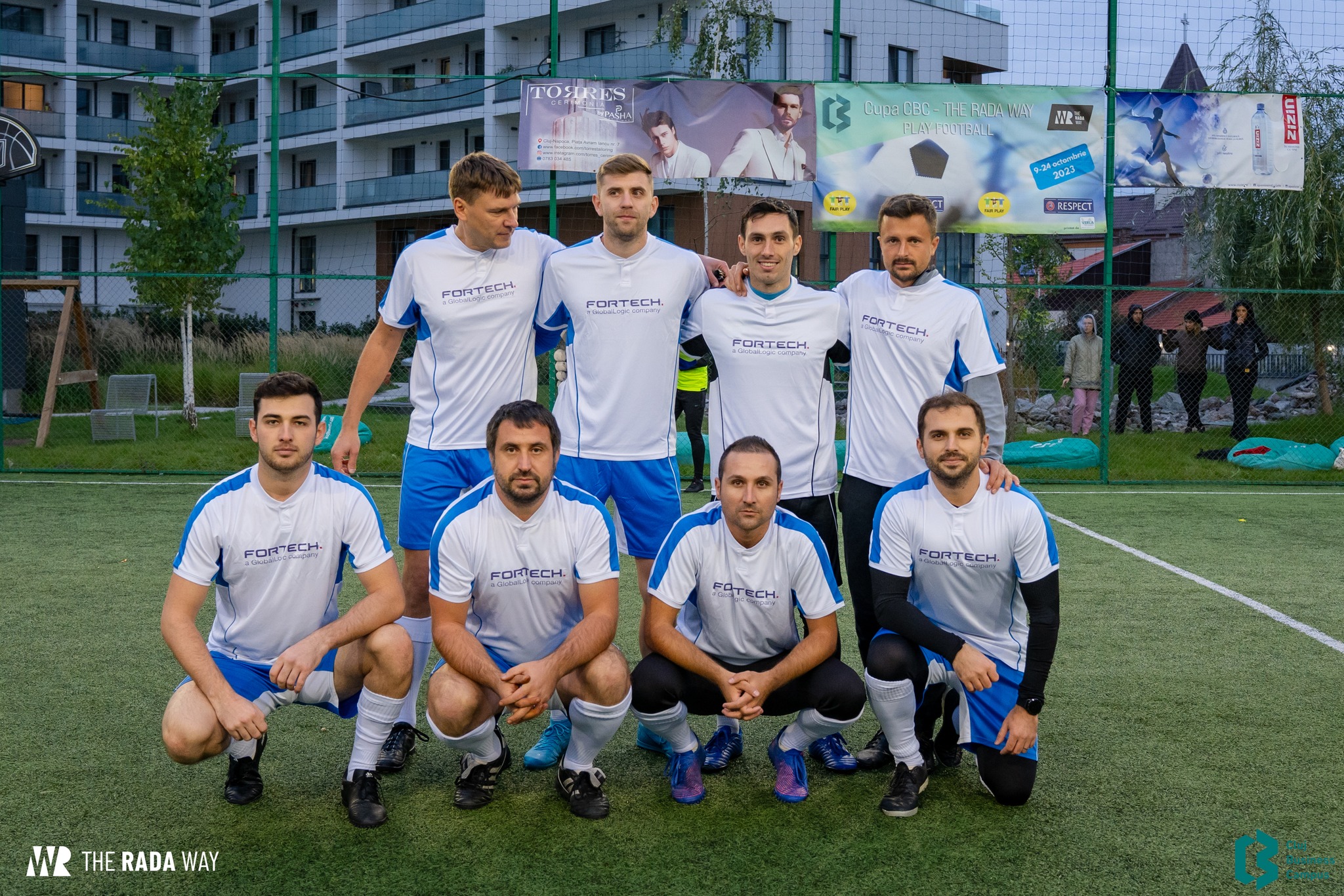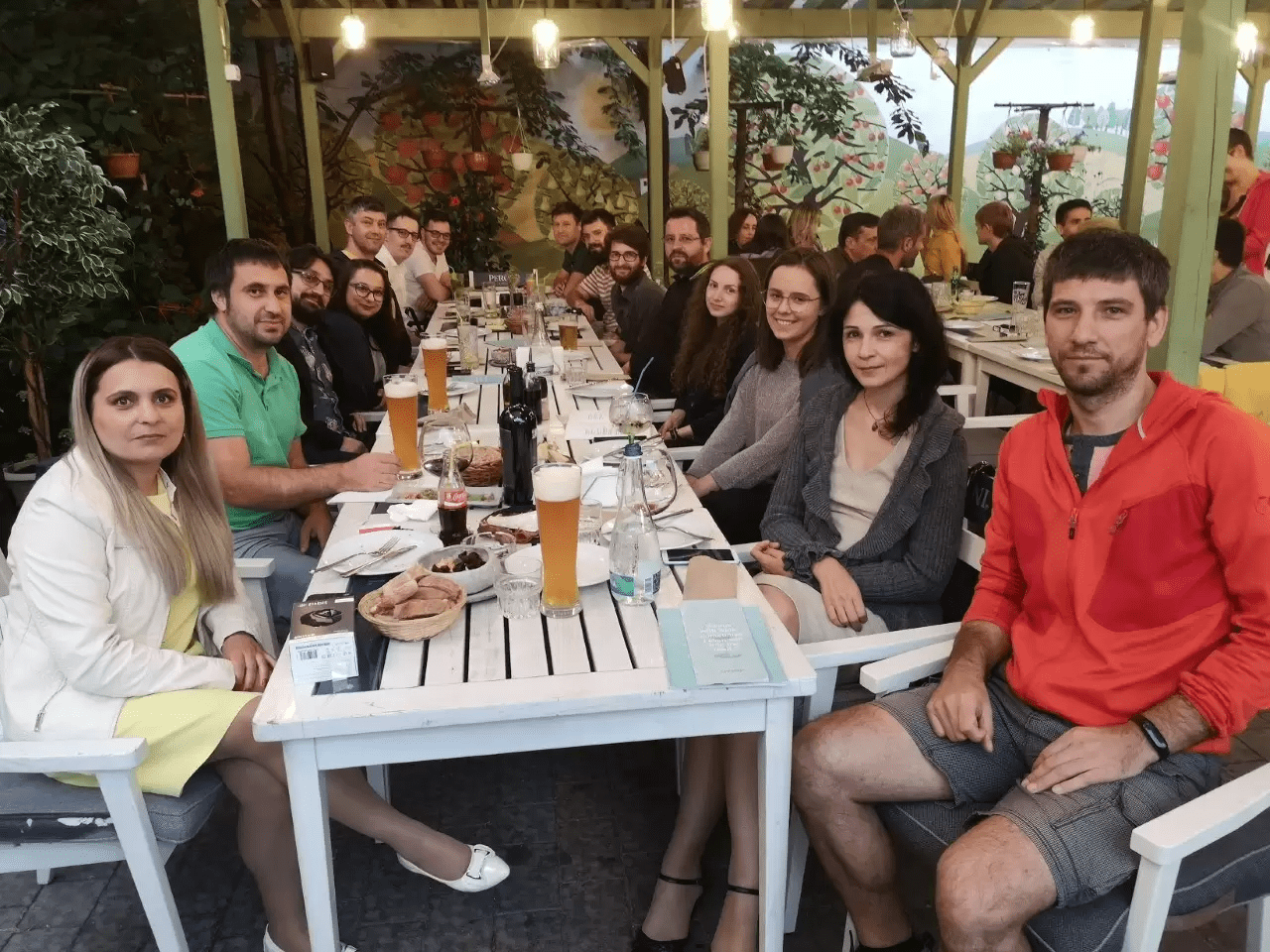In 13 years at our company, Emil Niculai has worked his way from .NET Developer to Software Architect and Project Manager, tackling technical challenges in automotive, fintech, and eCommerce projects. From his current role, he promotes a healthy growth mindset within his team.
Get a glimpse #BehindTheCode; learn why he thinks learning to play the violin (yes, the violin) is like programming, and what helped him break down complex issues in his projects and day-to-day life.
Tell us a bit about yourself. Your personality, studies, hobbies, passions.
I studied Automatic Control and Computer Science at the Politehnica University of Bucharest. In 2010, I decided to move to Cluj-Napoca to live in a smaller city and experience Transylvania’s well-known calm and laid-back culture. The hype is real; Cluj is indeed a gem. I learned to enjoy it so much that I decided to grow roots here. Now I live in Cluj-Napoca together with my wife and kids. Cluj County has the highest graduation rate in Romania on the high-school exam. Therefore, besides being a beautiful city, it’s also a great learning environment for my kids.
My hobbies have changed a lot in the past few years. Since becoming a dad, I’m more focused on spending as much time as possible with my family. Stefan (9) and Teodora (6) are growing up fast, and I want to enjoy every moment with them. We love going on hikes and taking biking and skiing trips together.
When I’m with my friends or colleagues, you’ll find me playing football. Since joining the company, I’ve been the captain of the football team. 🙂
As for unexpected hobbies, you’d be surprised to know that I used to play the violin. I learned how to do it at our local Student Club (Clubul Elevilor). Years later, I realized that learning to play an instrument is like programming. It helps you see the logic of things, the “fors” and “ifs,” from a different perspective. It also teaches you discipline.

Emil and the Fortech Football Team.
Could you please describe your career?
I joined the company in 2010 as a .NET Developer and worked on an eCommerce project for about a year. Then I moved onto a legal services project as a Senior Software Developer. I have been involved in an automotive industry project since 2012, initially as a Team Lead before transitioning to roles as a Software Architect and Project Manager. For the past seven years, my focus has been on the project’s management side.
My responsibilities include preparing project estimates, planning, and ensuring that we meet the quality standards agreed with the clients. I also solve different challenges, making sure things work successfully. But, most of all, I focus on helping my team perform and grow by being a service leader. I’m like an air traffic controller, but for people, tasks, priorities, and allocation. I find coaching and mentoring extremely valuable for the team’s growth. Besides, I try to make sure the team’s overall vibe is good. That’s a must-have ingredient for us as a team.
Please describe a project you felt proud to develop.
I would mention a very interesting project, a Product Lifecycle Management platform for the automotive industry. The project included three central systems for managing the internal processes for planning, development, and testing vehicles and components. The platform oversaw the entire production life cycle, from the design phase to the actual manufacturing of the car.
Besides that, I was also involved in various internal initiatives (recruitment, process definition, etc.), developing Fortech’s internal Dashboard Tool proof of concepts, a data visualization app meant to improve our reporting capabilities. The tool showed data in real-time to different internal stakeholders.
What was the project’s tech stack like?
On the project’s legacy side, where we focused on adjusting existing features, our main stack included .NET, Oracle, and C.
In the past 3 years, we’ve been migrating the project to next-generation technologies. So, on the platform’s next-gen side, we used Java, Spring Boot, JPA, Hibernate for the back-end. For the front-end we added React and Typescript, while for Automation we used Unit Tests (Cucumber), Integration Tests (Postman), UI Tests (Selenium/Playwright), and CI/CD with the GitHub Actions/on-premise Kubernetes.
What was your favorite thing about this software project?
I am enjoying the project’s current transition phase. This new phase we are going through makes me get out of my comfort zone every day. It was a steep learning curve with many challenges and growth #perspectives on an individual and team level, of which I am proud.
What was the most challenging thing about this software project?
Keeping up with the latest tools and technologies is one of the well-known challenges of our industry. Ensuring that we chose the right tech stack that made work easier for both the end users and our clients was a priority. It was just like a giant puzzle, and it was our responsibility to learn and understand each piece and find the right place for it. Probably the biggest challenge was managing expectations. Finding the right balance between our client’s needs and priorities and the team’s wishes was still something I was learning to navigate.
The automotive industry is very complex. However, throughout the years, abstraction helped me break down complex issues, such as changes in the project or in the team structure. For me, the focus is on the people. To help them grow and become the best at what they do. New technologies will become obsolete at some point, but people’s skills will not.

Emil and his team celebrating a successful project release.
How about the team involved in that project?
We were 10 people in the team, having more than 5 years of experience working together. We were distributed across different locations: Cluj, Odorheiu Secuiesc. Working from home in the past year created many challenges, but we kept our sense of #community strong. We trusted each other, and we could rely entirely on each other’s help, overcoming challenges as a team. Our processes were well-defined, so everyone knows what they need to do, starting from onboarding to implementing tasks. Plus, we were always looking to become better at what we do, to expand our experience and knowledge. These shared values were the glue that makes us a tight-knit team.
Recently, Fortech became part of GlobalLogic. What’s next in your career journey, and what do you expect?
The IT&C industry is constantly evolving, so I want to keep adapting to new things. To do so, I will focus on having a healthy growth mindset and the discipline to constantly push myself and help others to self-improve. Nothing pleases me more than seeing my colleagues succeed. Knowing that I added one brick to their knowledge base makes me feel proud and content.
Balance is critical in everything. So, one of my biggest lessons is to continuously learn from my own mistakes and other people’s experiences. Talking about what’s next, I would love to have more time to code.
As we are moving forward on our integration journey with GlobalLogic, we are looking to open the window to new opportunities, new cultural integration, and to foster the community sharing of stories.